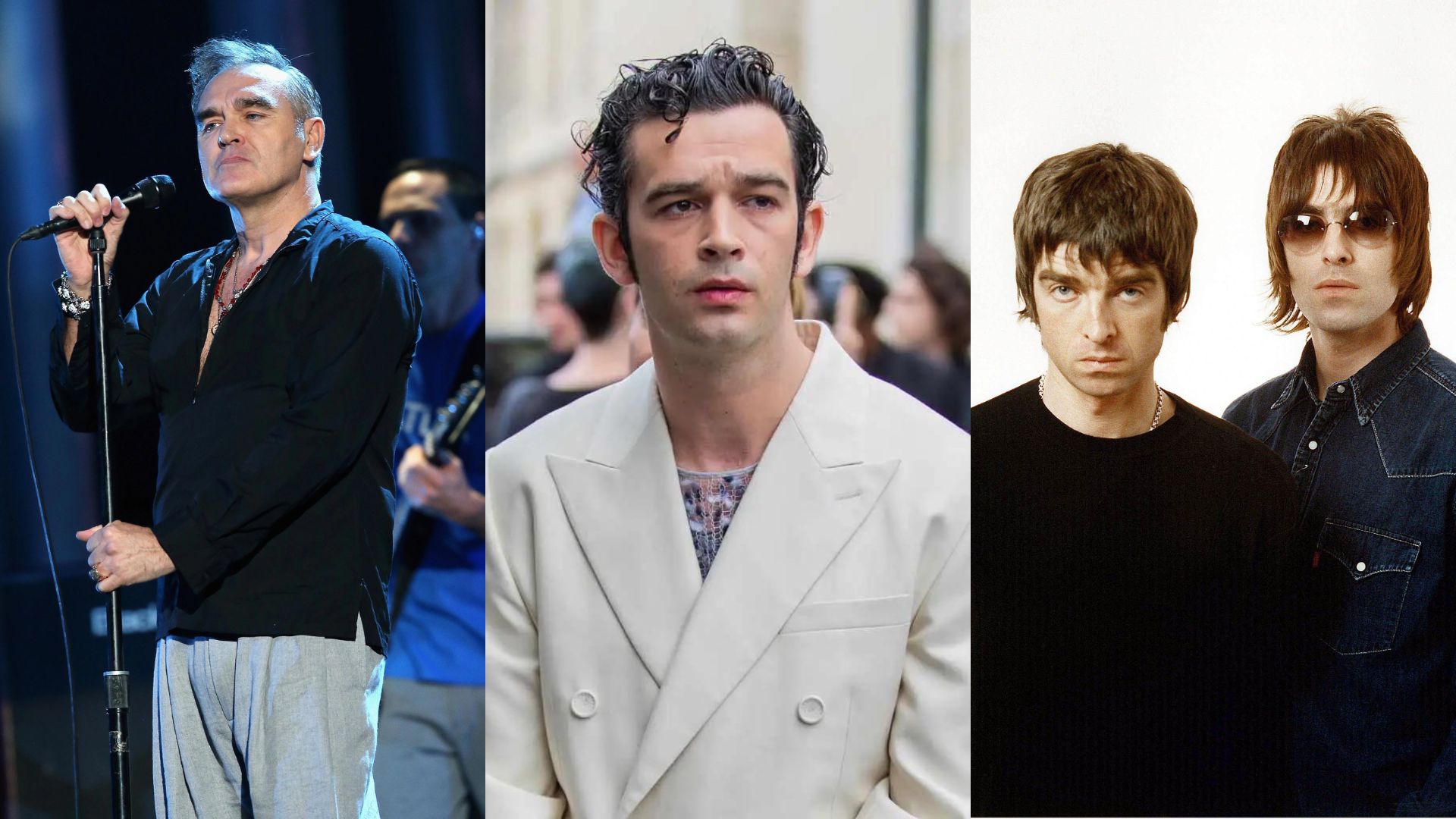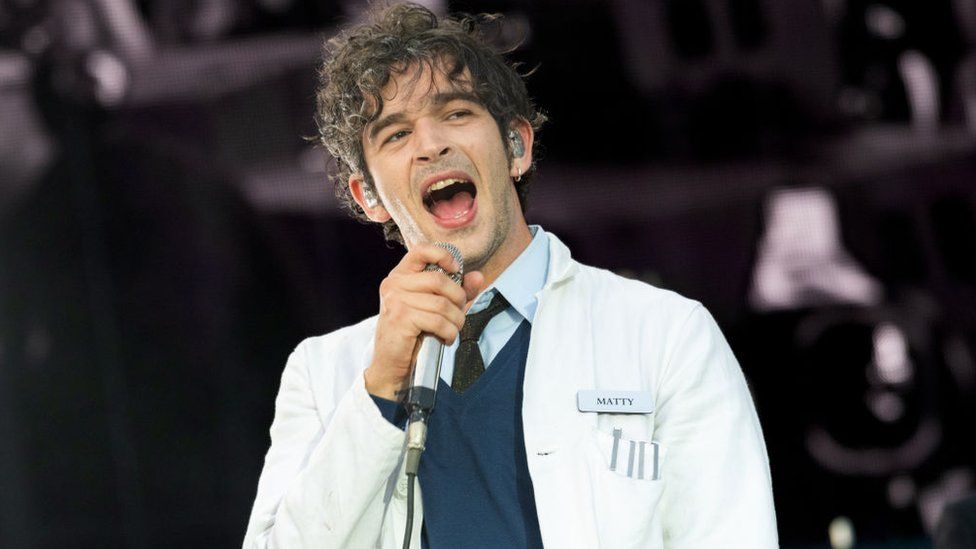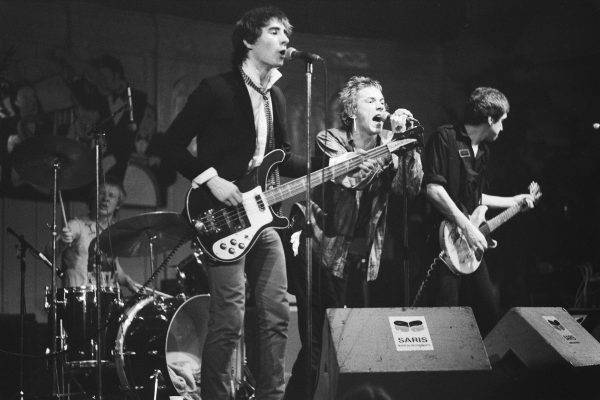Matt Healy and The Problematic Curse of the Manchester Band Frontman
 Thirsty for JUICE content? Quench your cravings on our Instagram, TikTok and WhatsApp
Thirsty for JUICE content? Quench your cravings on our Instagram, TikTok and WhatsApp

The 1975’s disastrous final show that closed out the recent Good Vibes Festival has been a point of contention across the internet. Members of JUICE had a front-row view as The 1975’s frontman, Matt Healy, had a full-blown meltdown before being booted off stage.
Watch a snippet of his temper tantrum below:
Longtime fans of the illustrious Manchester band expected Healy to have some sort of playful rant before kicking off into one of their most popular songs, ‘It’s Not Living (If It’s Not With You)’.
While this recurring on-stage antic has been recorded and shared online before, that moment did not come for audiences in Malaysia.
What transpired instead was much worse, culminating in a complete cancellation of the festival, depriving attendees of live performances of acts like The Kid LAROI, Lee Hi, and The Strokes. A truly sad turn of events for all those involved.

In light of the catastrophic repercussions of Healy’s behaviour, it’s important to note that his mannerisms can be seen in many of his predecessors in the Manchester indie rock scene.
With each decade comes a new band redefining the Manchester Sound, and with each decade it seems that these bad apples become even more rotten.
To paint the full picture, we compiled a list of personalities that may gave Healy a run for his money. But before that, here’s a quick history lesson on…
The Rise of The Manchester Sound

The rise of indie music in Manchester can all be traced back to when the Sex Pistols played at the Lesser Free Trade Hall in 1976. Among those in attendance were future members of Joy Division, The Smiths, and Simply Red. This one influential show dictated the future of Manchester-based music from here on out.
Buzzcocks were the first punk band from Manchester to release their own first independent-label record in 1977, which many have attributed to being one of the first indie records, with the term even being coined around this time.
Post-punk was when the bands of Manchester truly became a force to be reckoned with- spearheaded by Joy Division and its eventual evolution to New Order charting the way for a new kind of sound in the 1980s.
Arguably the most influential indie band of all time, The Smiths, came soon after, with their jangly guitar sound and relatable lyrics being a total game changer and the total opposite of the more robotic New Wave sound of that decade. Standing above it all was Morrissey, the proverbial, self-righteous messiah of indie music.
The Stone Roses, The Verve, and most popular of them all, Oasis, continued what The Smiths began after the group broke up. In the 1990s, Oasis themselves became the face of Britpop, with the controversial antics of the Gallagher brothers becoming front-page news for quite some time.
For a while, it didn’t seem like any bands from Manchester in the 2000s changed the face of music, that is until the debut of The 1975 in 2012. British pop music was never the same again once they debuted, influencing a new rise of British pop bands from here on out.
Morbid Morrissey
When it comes to controversial frontmen from Manchester, the first that comes to mind is Morrissey. A staunch vegetarian and lover of animals, as evidenced by The Smiths’ second album Meat is Murder, Morrissey arguably became more of a thorny subject once he went solo.
After The Smiths broke up in 1987, the cult of personality surrounding Morrissey grew immensely popular, especially in South America. Ardent fans would throw themselves at Morrissey, risking life and limb to climb onto the stage just to touch the baritone crooner.
Once Morrissey gained newfound fame in the 2000s did the controversy truly start, with the scornful singer beginning to be more outspoken in his politics and animal rights activism. This was also about the time when his more racist views began to come out, including his disdain for immigrants coming into the UK and even his proclamation of Chinese people as “sub-human”.
On top of that, Morrissey’s live shows were all subject to cancellation on a whim, depending on the singer’s mood and even whether the venue serves meat on a particular day. While The Smiths began as a pro-working class and anti-elite act, it seems that Morrissey himself has become more and more right-wing as he ages.
The Glamorous Gallagher Brothers
Those who know Oasis will undoubtedly be familiar with the rowdy, hooligan behaviour of the band’s two main personalities, Noel and Liam Gallagher. The two blue-collar brothers shared a love for The Beatles and The Smiths when creating their band, but brought a rough edge that their influences never had.
Their hedonistic lifestyles weren’t limited to bars and clubs when they were not performing, as on stage Liam was prone to drunken outbursts and even picking fights with his own brother. For a time, it did seem like Noel was the more level-headed of the two, though he himself was prone to making controversial statements to the press whenever interviewed, especially towards rival band Blur.
The rivalry between the two brothers heated up even more as the new millennium approached. Their headlining of the 2004 Glastonbury Festival left a sour taste with fans and marked the beginning of the end for this Manchester band. Soon Liam attacked professional footballer Paul Gascoigne, and Noel eventually quit the band in 2009.
Healy’s Horrible History
From Morrissey’s misguided attempts at activism and the Gallaghers’ crude behaviour, Matt Healy seems to deftly embody both of these aspects and more. The biggest difference from the previous frontmen is Matt Healy’s upbringing, far removed from the blue-collar trappings of his predecessors as Healy’s parents are both actors.
While The 1975 ultimately became the face of modern Britpop, their sound was a lot more like Huey Lewis and The News instead of Oasis or Blur. Nevertheless, they inspired numerous other bands including the likes of Pale Waves and Blossoms.
As they grew in popularity, Matt Healy’s public persona became more and more erratic, with the frontman also struggling with heroin and cocaine addiction. Around 2016 was when allegations of Healy’s inherent racism and sexism came to light.
From mocking Ice Spice and Asian races through a podcast in February 2023, doing the Nazi salute on stage, and even eating a raw steak while performing, Healy’s antics became more and more bizarre as time went on.
His drunken gay kiss in Malaysia was also nothing new, as he kissed a fan onstage in Dubai in protest of the country’s anti-LGBTQ+ laws. This habit of kissing random fans in concerts also became a major point of controversy for Healy.
Something is definitely in the waters of Manchester as no matter what, these frontmen are all prone to be making front-page headlines every other week. What reeks of privilege is each performer’s indifference and lack of remorse for their actions, completely believing that they are in the right and making a stand on important issues.
What is different about the performers of yesteryears is that social media was not a thing while they were around, so half of the things that Morrissey and the Gallaghers have said during their heydays were not recorded, which may or may not be just as racist and sexist as Matt Healy.
With fans recording everything Matt Healy says live on stage, there are way more instances for him to display his outlandish and despicable behaviour. Morrissey and the Gallaghers have the advantage of time to mellow their behaviours out, but even that is to a very slight degree.
The true victims will always be the fans, as seen with the recent Good Vibes Festival which even impacted non-fans as the entire festival was cancelled. Even The 1975’s performances in Indonesia and Taiwan were all cancelled following Healy’s meltdown.
Whether these performers will ever make things right for their fans remain to be seen, but it honestly seems that they don’t care. How can millionaires ever truly feel for the right of the common people once they’ve left the gloomy underground of Manchester?


 Get Audio+
Get Audio+ Hot FM
Hot FM Kool 101
Kool 101 Eight FM
Eight FM Fly FM
Fly FM Molek FM
Molek FM